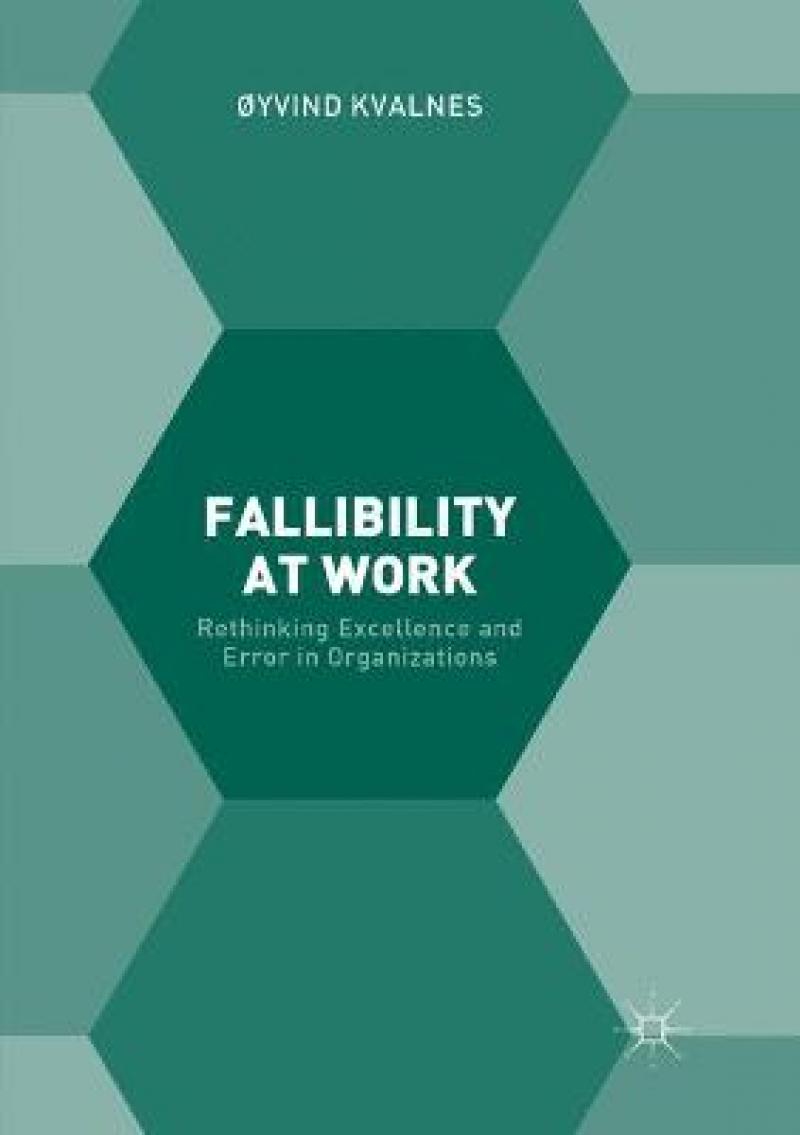This book is published open access under a CC BY 4.0 license.
This book addresses how organizations can deal with human fallibility in order to create space for excellence at work. Some mistakes in work settings put lives at risk, while others create openings for innovative breakthroughs. In order to deal constructively with fallibility, an organization needs a communication climate where it is normal to voice opinions, admit mistakes, and ask for help in critical situations. The book builds on interviews with practitioners in healthcare, aviation, IT, public governance, and industry. It connects narratives from these fields with theories from organizational psychology and philosophy, as well as from positive organizational scholarship. In the final chapter, an overall ethics of fallibility at work is outlined. Fallibility at Work contributes to research in multiple academic disciplines, but also reaches out to practitioners who are interested in the connections between error and excellence in organizations.
This book is published open access under a CC BY 4.0 license.
‘This is an exciting, groundbreaking book. With an astonishing array of examples and a brilliant eye for the essential, Øyvind Kvalnes takes the Socratic motto of knowing yourself to our everyday lives in the workplace. Applied philosophy at its best, the book will affect the way you do your work and live your life.’
—Professor Esa Saarinen, Aalto University
This book addresses how organizations can deal with human fallibility in order to create space for excellence at work. Some mistakes in work settings put lives at risk, while others create openings for innovative breakthroughs. In order to deal constructively with fallibility, an organization needs a communication climate where it is normal to voice opinions, admit mistakes, and ask for help in critical situations. The book builds on interviews with practitioners in healthcare, aviation, IT, public governance,and industry. It connects narratives from these fields with theories from organizational psychology and philosophy, as well as from positive organizational scholarship. In the final chapter, an overall ethics of fallibility at work is outlined. Fallibility at Work contributes to research in multiple academic disciplines, but also reaches out to practitioners who are interested in the connections between error and excellence in organizations.
“This is a balanced, thought-provoking and very entertaining book on how individuals, groups and organizations can handle fallibility at work. I find it extremely important to address this topic in all kinds of organizations, particularly in military and other hierarchical organizations, where evasiveness can be a question of life or death. Building a healthy culture is a responsibility for all leaders. This book provides us with some important tools to succeed.” (Ingrid Margrethe Gjerde, Chief of Staff of the Norwegian Army)
“This book takes on the important organizational dilemma of fallibility. It contains stories that are particularly powerful in conveying the complexity of living out fallibility in institutional contexts.” (Jane Dutton, Professor, Ross School of Business, University of Michigan)
“This book will motivate the reader to speak up about potentially unwanted events that others fail to see or choose to overlook. It gives an excellent account of a way of thinking that is often neglected in work settings. The reader can apply the knowledge from the book to make a positive difference and improve collaborative efforts in his or her organization.” (Torbjørn Atle Aanonsen, Quality Management and Project Quality Specialist, Aker Solutions)
